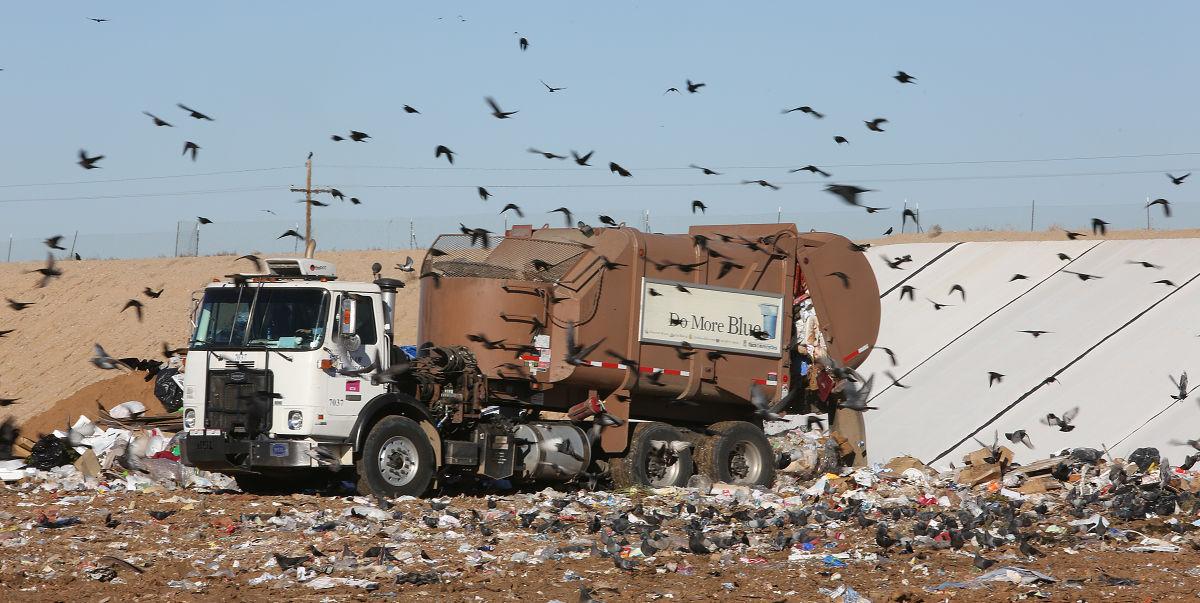Businesses will see the cost of city trash collection go up 5 percent beginning July 1 if a new fee plan is approved by the Tucson City Council this week.
The fee changes will generate $270,000 in new revenue for the city’s environmental services department, which plans to use the money to buy two new garbage trucks.
Residential customers’ rates will not change. Commercial rates were last increased four years ago.
Monthly service fees for businesses will increase to $63-$544, up from $60-$518.
Fees for front-loading compaction containers will decrease to $118-$975 per month from $129-$1,194 per month.
A public hearing on the new fees will be held at the City Council meeting Tuesday.
The new fee schedule also scraps requirements that businesses report on how many plastic bags they use and how many they recycle, and eliminates a requirement that businesses train clerks on ways to reduce the use of plastic bags, bringing the city into compliance with a new state law.
NEW FEE FOR BUSINESS COMPOST PICK-UP
With the new fee plan, the city would begin charging $10 per month per trash bin for commercial food waste that can be composted.
The city started picking up compostables from 26 businesses last year as a pilot project and now is including the service as part of its regular offerings, said Environmental Services director Andrew Quigley.
The city collected nearly 400 tons of food waste through the program in the past year, assistant city manager Albert Elias said in a memo.
The compost program doesn’t yet pay for itself, but the city expects to add new grocery store, restaurant and hotel clients this year, Quigley said.
Grocery stores are on board with the program because it helps them divert food waste from the landfill, said Tim McCabe, president of the Arizona Food Marketing Alliance, a grocery industry group.
Grocery stores are experimenting with different ways to separate food waste in the back of the store, he said. Some goes to food banks, and the rest must be put in different trash containers, including a bin for compost. “It just makes sense to take it back to the soil and use it to grow more food,” McCabe said.
‘50 SHADES OF BROWN’ could see changes
The new fee schedule also would give the environmental services director the ability to set rates for selling recycled paint.
The city’s Household Hazardous Waste program has been taking in leftover paint from home improvement projects, which keeps it out of the landfill. The city mixes paints together — resulting in “50 shades of brown” — and sells it or gives it away to graffiti clean-up projects, Quigley said.
But “we’re trying to get out of the paint processing business,” he told the City Council.
In the future, the city may contract out for paint service to save money. The paint program costs about $100,000, and paint sales bring in about $70,000, Quigley said.





